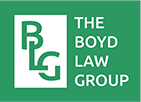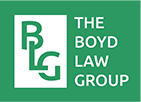The Coronavirus (COVID-19) remains a challenge for the world and, in particular, the greater New York metropolitan area. The spread of the virus has required businesses to shut down or reduce their services in unprecedented numbers, which has led the Federal and State governments to scramble to find ways to respond to the pandemic and mitigate the economic fallout. Below is a short sampling of the employment-law related responses of the Federal government, and the states of New York and Connecticut to this hardship. Many of these legal changes are productive, well-reasoned and a fine example of our government working to deal with these unexpected and difficult developments.
The below changes are all accommodations relating to employee rights. This coming week, indeed in the next few days, a stimulus package relating to businesses is likely to be announced. These business accommodations will be reported in a subsequent blog as they become effective.
The Federal Government COVID–19 Response
The response from the Federal government has been set forth in multiple steps so far, with additional legislation on the horizon. One key bill goes into effect on April 2, 2020 and expands the Family Medical Leave Act (“FMLA”) to now protect the job security of those affected by the need to take leave because of COVID-19. Legislation also offers a new paid sick leave law for those individuals.
Under this newly expanded FMLA, individuals employed for at least 30 days will be able to take up to 12 weeks of protected leave for, among other things, time to care for a child if the child’s place of care is closed for a public health emergency. Moreover, employers with 25 or more employees are obligated to reinstate any employee who has taken emergency FMLA for COVID-19 to the same or equivalent position when they return from such leave. Finally, depending on the size of the employer, the first 10 days of COVID-19 emergency FMLA leave may consist of unpaid leave, but the employer must pay the employee for each subsequent day of leave – though at a reduced salary.
The bill also mandates that employers with 500 or fewer employees provide paid sick leave to employees if the employee is sick with or has been forced to quarantine due to COVID-19. Full-time employees are entitled to 80 hours of this leave, while part-time employees shall receive pay for the equivalent number of hours that they average over a two-week period. The provisions on paid leave and the expanded FMLA are, for the time being, temporary and should end this year.
The New York COVID-19 Response
New York State and city governments have taken extensive steps to mitigate the effects that the COVID-19 will have on health, safety, and general employee welfare. In particular, Governor Andrew Cuomo signed a bill that expands paid sick leave for employees across the state. The law entitles employees who are subject to mandatory or precautionary orders of quarantine or isolation issued by the state or state agencies to pay which varies based upon the size and revenue of the employer. Employees who are diagnosed with or displaying symptoms of COVID-19 are entitled to 80 hours of paid sick leave at full pay, with a maximum of $5,110 total, if they are working for employers with between 50 and 499 employees. Employers with fewer than 50 employees are only obligated to provide paid sick leave if it does not jeopardize their business viability.
Employees covered by the New York law are not eligible to take sick leave if they are asymptomatic or have not yet been diagnosed, and the sick leave provisions do not apply to employers who voluntarily close business operations for COVID-19 related safety and health concerns.
The Connecticut COVID-19 Response
As of this writing, Connecticut has not yet enacted COVID-19 related legislation, but Governor Ned Lamont issued executive order 7H, which requires the closing of all non-essential businesses by 8 p.m. on March 23. Employees of non-essential businesses are to work from home as is possible. The Connecticut Department of Labor has also released guidance for employees and employers in these turbulent times. The guidance addresses questions regarding unemployment compensation, paid sick leave, family medical leave, and wage and hour laws.
At The Boyd Law Group, we have extensive experience with federal, Connecticut, and New York labor and employment laws and stand ready to offer counsel to employees and employers alike as they navigate the effects this virus has on the employment landscape. #weareinthistogether #letustaketheworryoutofyourwork

